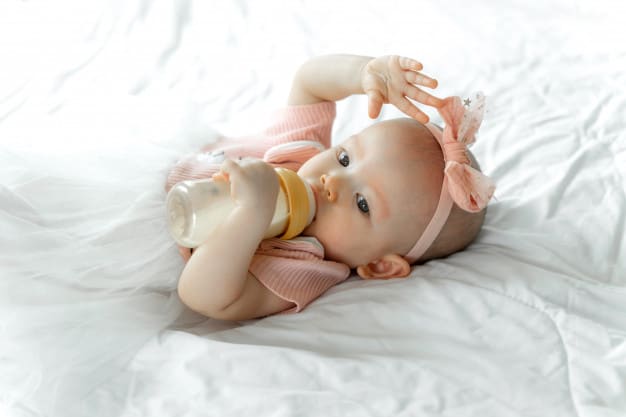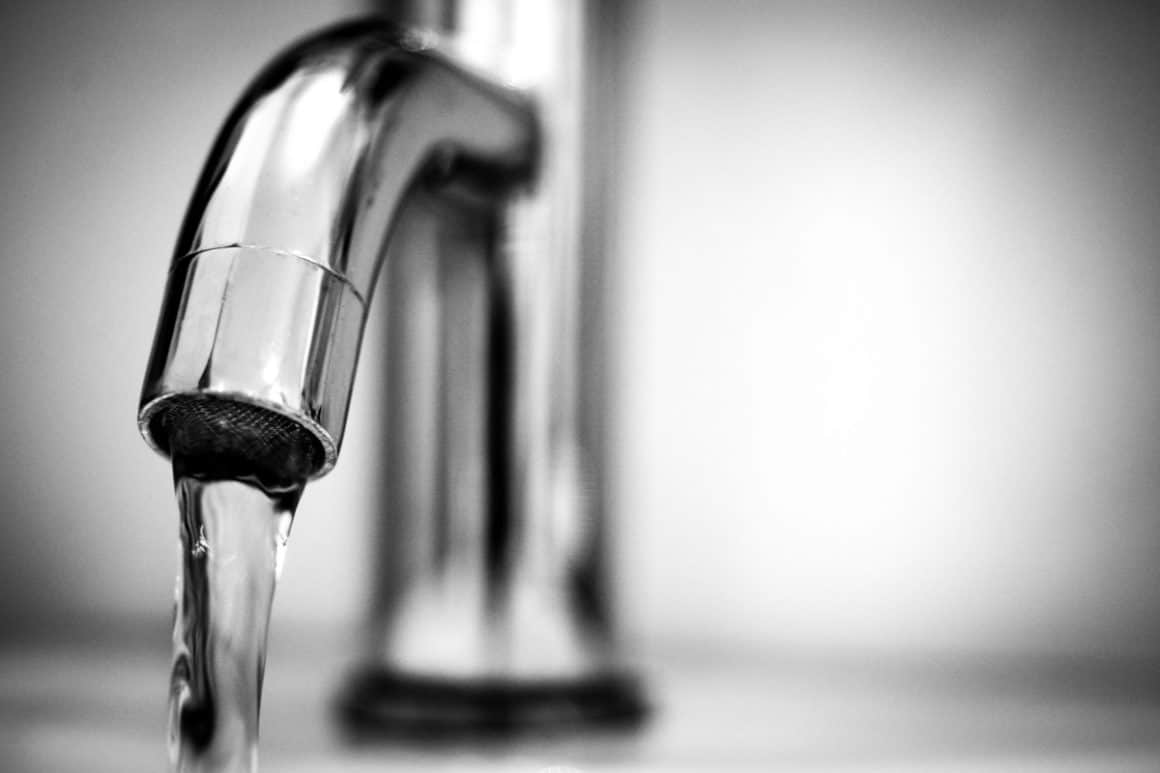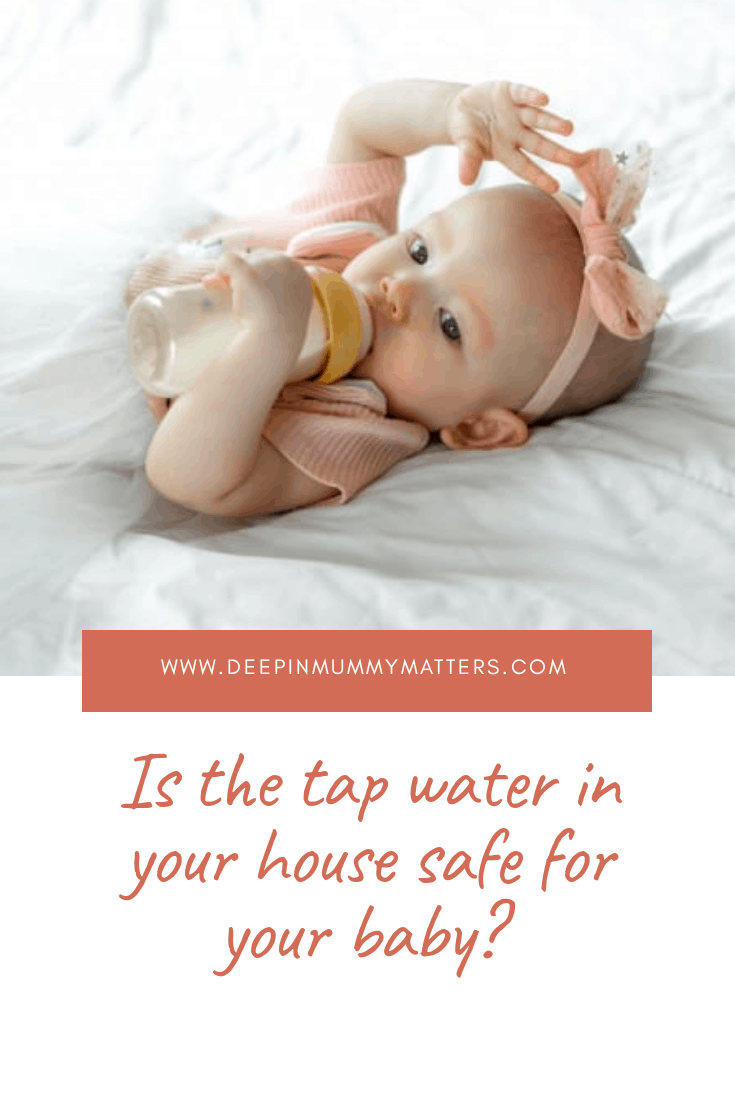Drinking tap water daily may be safe for a healthy, robust adult. Nevertheless, current state standards should focus more on the tap water contaminants harmful to babies when exposure occurs during their critical developmental stages. Are you giving your newborn tap water? Considering tap water may contain lead, nitrates, pesticides and herbicides, hormones, and bacteria/viruses, making it safe for your child is mandatory.
How Much Water does a Baby Drink?

Babies under six months and older drink much more water for their size than adults do. In particular, bottle-fed babies’ diets consist of 85% water mixed with formula. Until parents decide to supplement the babies’ diets with solid foods, these babies risk exposure to chemicals and toxins that can have harmful effects on their development and health for their lifetime. In many countries worldwide, environmental agencies establish the “safe” levels of contaminants in drinking water.
However, these thresholds apply to adults. Research is still necessary to understand how exposure to pollutants, chemicals, heavy metals, pesticides, etc., can alter neurological and physical development.
What Are the Most Concerning Tap Water Contaminants?

According to the EWG, tap water contains some of the most harmful contaminants linked to adverse effects upon children.
1. Lead
This highly toxic metal reaches your water because of old plumbing and pipes’ corrosion and poor infrastructure. This neurotoxin shows significant destructive potential during the mom’s pregnancy and the baby’s early development stages. If the case of Flint proved anything, it proved that there was no “safe” amount of lead a child should ingest.
2. Nitrates
The health dangers associated with nitrates include the risk of congenital disabilities and cancer, among others. Children exposed to nitrates in their early stages of life can develop cancers and other illnesses years later.
3. Atrazine
Atrazine is a herbicide, and it goes along well with nitrates. Science considers the two of them can have cumulative effects over time. Atrazine links to hormonal disruption, and it leaks into your tap water if you live in agricultural areas or rely on a private well for drinking water. There is no safe amount of atrazine for a child to ingest daily.
4. Bacteria and viruses
Young children have enough digestive problems of their own to get even more complications from the tap water they drink. Giardia, cryptosporidium, coliform bacteria, and some viruses can disrupt their health and well-being in dramatic ways. Tap water everywhere contains some levels of bacteria, so it is better to keep your baby safe. Investing in a water distiller for home use can provide an effective solution to ensure the purity of the water your young children consume. By removing contaminants and impurities through distillation, you can have peace of mind knowing that your family is drinking clean and safe water.
5. Arsenic
No level of arsenic is safe, especially in the drinking water of a child. According to health experts, exposure to arsenic can lead to intellectual deficiencies in young children, bladder and liver cancer, and vulnerability to diabetes, skin problems, and heart diseases.
If you consider that your tap water also contains manganese, chloride, fluoride, and many other contaminants, it makes sense you treat the water so you make it safe for your baby.
How to Make the Water Safe for Your Family
If you consider that bottled water saves the day, you might be wrong. Besides accumulating large quantities of plastic – which is harmful to your budget and the environment – most bottled water is just tap water that went through a superficial form of filtration.
Next in line comes boiled water, which can eliminate some contaminants, but not all. Lead, toxins or soluble pollutants and impurities remain in the water even if you boil it.
Test Your Water
If you rely on city water or a private well, test your water at least once a year for lead, microorganisms, manganese, pesticides, and other chemicals. The easy way is to get a water testing kit and do it yourself. The safest way is to ask your local authorities for a water report and compare the results with the tests performed by an independent laboratory.
A water sample tested in a professional environment can tell you plenty of what you should keep an eye on when it comes to your family’s safety.
Get the Proper Water Filtration System
A simple water filter pitcher based on GAC processes can keep you and your baby safe from most water contaminants.
The highly performing ones can successfully remove chlorine, some heavy metals, and some harmful contaminants.
- The active carbon filtration technology is an affordable and practical solution if your tap water shows moderate impurities levels.
You can use countertop pitchers or whole house water filters if you consume a lot of water and rely on a private well, for instance.
- One of the best solutions to remove hazardous contaminants in your water are reverse osmosis system filters.
These hi-tech devices can clean your water from bacteria and viruses, heavy metals, volatile compounds, toxins, pesticides, and even radioactive elements. If you want to preserve your family’s health at all times, reverse osmosis under-sink water filters are the best tap water filtration systems you can get. Their most significant advantage is that they also add healthy minerals back into the water. In other words, you and your baby can have nutritious water straight from the tap.
- Water filters are available today in many shapes, sizes, and levels of performance. Upon testing your water, get a filtration system that best fits your home, your water source, and your daily needs. Whole house water filters purify the water in the entire house—under-sink filters only clean tap water you use for cooking, washing produce and drinking. Pitchers and distillers purify smaller quantities of water – the ones you drink.
One issue receiving hot debates as of late is the fluoride in drinking water. Check with the paediatrician the proper fluoride levels your baby should ingest from their first months of life. If the fluoride levels are too high, this substance can harm your child. The time-tested and proven solution against fluoride is a reverse osmosis system, as other types of filters cannot remove it.
Do you give your child water from the tap? Do you have any concerns regarding its contaminants? What solutions do you use to keep the water clean and safe for your baby?

